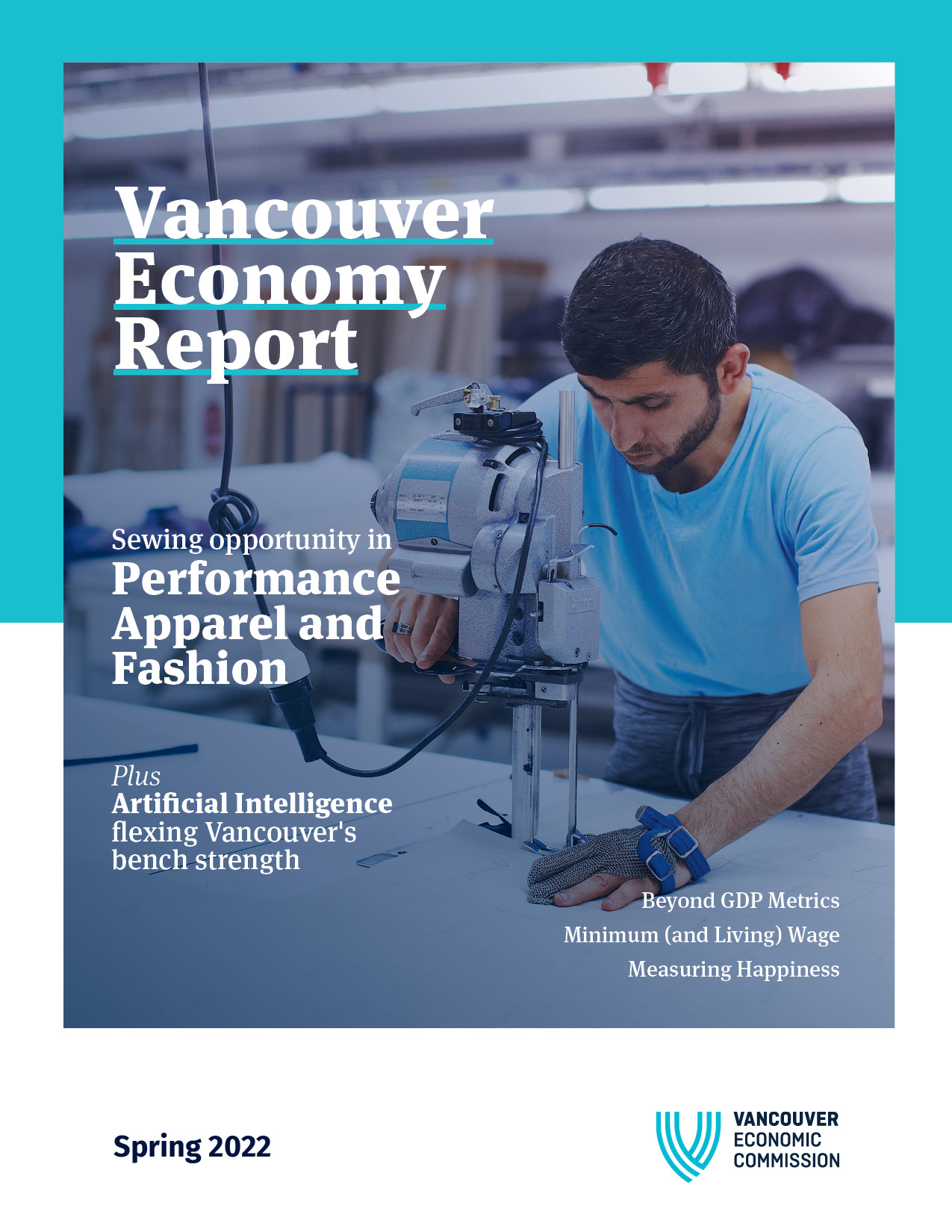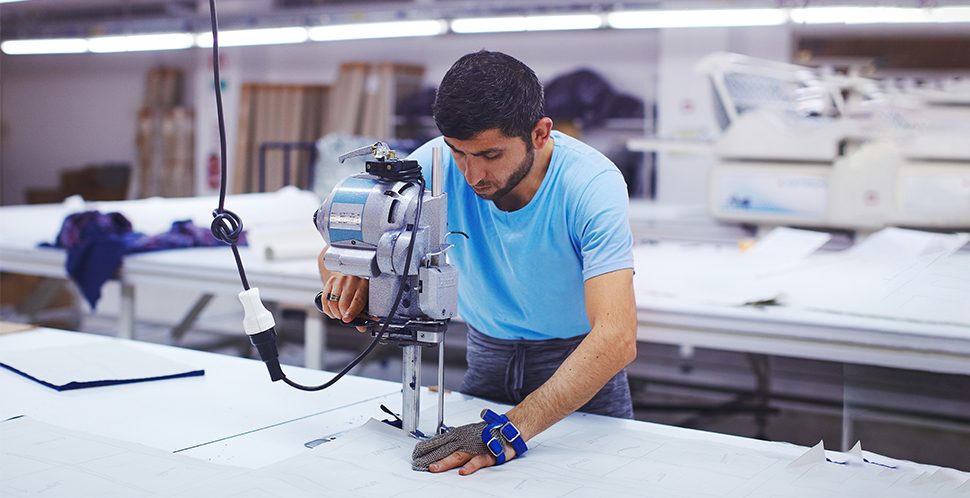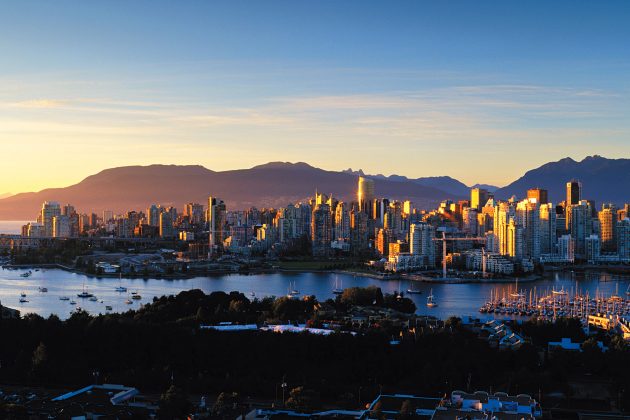Jobs and Careers in Vancouver’s Fashion and Apparel Industry
As with other manufacturing sectors, the performance apparel industry creates career opportunities in research, development and design, materials engineering, assembly, distribution, points of sale, repair, and education. However, one of the foremost challenges in the industry remains the difficulty in filling these positions.
A recent BC Apparel and Gear Association (BCAG) study estimates some 1200 job vacancies today, and a labour market information report by BC Manufacturing projects that the provincial industry will grow from approximately 7,700 jobs in 2015 to 11,350 jobs by 2025.
jobs by 2025
opportunity in BC apparel
Job vacancies today
These acute hiring needs come from both increased demand and production as well as filling vacancies from turnover and retirement. Highly skilled sewists, executives, fit specialist engineers, and e-commerce professionals with experience in the performance apparel and premium attire industries are in particularly short supply.
The industry is advocating for policies to address the labour shortage. One is an addition to the Global Skills Strategy so that these in-demand skills are fast-tracked through the immigration process. Another is collaboration between Ministries of Education and training institutions to certify programs or diplomas that train sewing and garment assembly technicians that can meet the needs and demand of local producers and factories.
Sources: BC Alliance for Manufacturing, BC Gear and Apparel Association
Where to learn fashion design and industrial sewing in Vancouver
This is a non-exhaustive list of academic and training institutions offering diplomas and certificates in fashion design and textiles.
- LaSalle College | Fashion Design Diploma
- Blanche Macdonald Centre | Fashion Design Diploma
- Visual College of Art and Design (VCAD) | Fashion Design School
- JCI Institute | Core Fashion Design
- University of British Columbia / Kwantlen Polytechnic University | Certificate in Textile Studies
- Vancouver Community College | Fashion Design & Production Diploma
Support for British Columbia’s performance gear, apparel and premium fashion industries
Despite its history and success, building a resilient and successful apparel industry in the future is not without its challenges. Extensive consultation with leaders in the performance gear and apparel industry during BC Alliance for Manufacturing’s extensive labour market partnership, and myriad other stakeholders in the wider textiles industry have yielded the following action areas:
- Strengthen relationships and alignment between post-secondary institutions and industry, so that industry needs can be filled through training programs
- Improve the region’s sewing capacity to support the production of samples, prototypes, and large orders
- With local talent supply constrained, expand the role of immigration to aid firms in filling specialized skills
- Educate youth on the diverse career opportunities that exist within the apparel industry
- Embed circular design into textiles, second-life textiles and the circular economy
- Ensure equitable representation in any industry associations or task forces forging a common path forward, so that any strategies that are developed will benefit a diverse landscape of businesses
- Pursue natural synergies between gear, apparel, and other high-growth Vancouver sectors (e.g. software and hardware engineering, manufacturing) to accelerate R&D and IP in high-potential sub-sectors like wearables and smart technical apparel.
“BC Apparel is at least a $5 billion opportunity, but only a handful of global brands currently manufacture in BC. Furthermore, additional opportunities exist as we move into the era of smart fabric and wearable tech. Vancouver has been great at cultivating and promoting its tech sector. We risk losing an enormous opportunity by neglecting the advanced manufacturing processes that could leverage our bench strengths towards developing and manufacturing technical apparel, which includes performance and wearable technology.”
Marcus Ewert-Johns, Executive Director, BC Alliance for Manufacturing
How you can make a difference
- Start a conversation. Did you know about the diverse opportunities in the sector? Kwantlen Polytechnic University, Vancouver Community College, Langara College and UBC all offer education and training in textiles, apparel, and fashion.
- Explore how policy could bring positive change. These policies include expedited immigration, the formalization of local training, or even industrial space-use and property zoning
Further Reading
- BC Apparel Workforce Strategy | BC Alliance for Manufacturing / WorkBC
- Research and Resources | MVRD
- 2020 Waste Composition Study | MVRD
- Towards the Circular Economy in Textiles | VEC
- Unravelling the Problem of Apparel Waste in the Greater Vancouver area | Andrea McKenzie (COV) and Karen Storry (MVRD)
- A Feasibility Study of Textile Recycling in Canada | Fashion Takes Action
- 2020 HR Report: The BC apparel industry fights back against a talent shortage | BC Business

The Vancouver Economy Report
This is a preview of a longer industry profile that first appeared in the Spring 2022 edition of the Vancouver Economy Report. For more articles exploring economic issues, trends, and emerging sectors, subscribe to our free economy report and check out the full issue:
Read the Report



